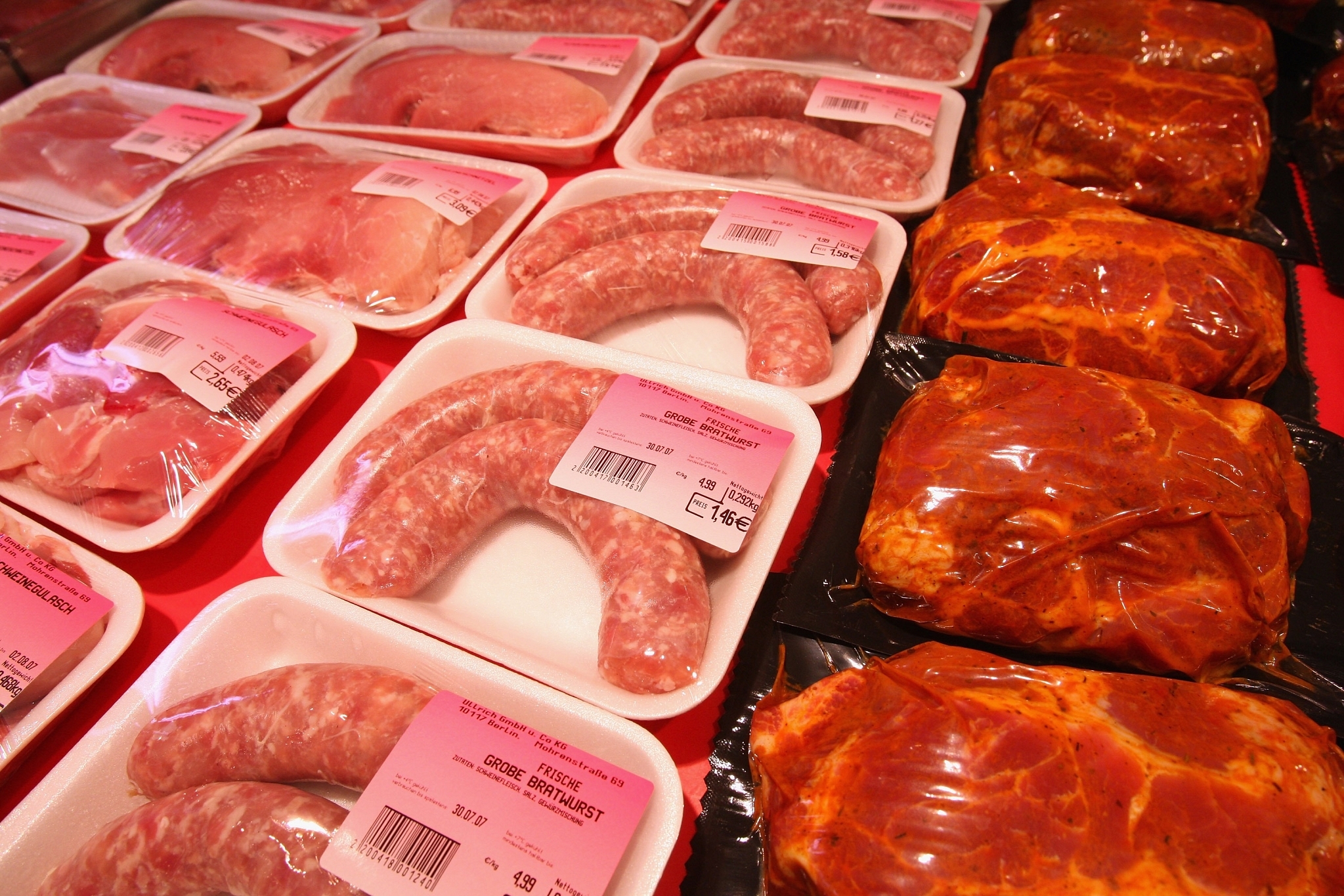Insta
A ‘Meat Tax’ On Beef, Lamb And Pork Could Save 2.2 Million Lives, $172 Billion In Healthcare Per Year: Oxford Study

Pork sausages and filets lie in a display counter at a supermarket July 30, 2007 in Berlin, Germany. (Sean Gallup/Getty Images)
Scientists at the University of Oxford have proposed that governments should consider imposing a ‘meat tax’ - or price hikes on red meat - such as beef, lamb and pork - to reduce their consumption, BBC has reported.
The researchers argued that hundreds of billions of dollars generated through such a tax on red and processed meat could potentially be utilised towards funding health-care costs every year. Besides offsetting health-care costs, such a tax could easily prevent over 2,20,000 deaths a year globally, the report says.
The recommendations are based on a new research study by Oxford University which also proposed optimal taxation levels for red and processed meats in around 150 countries and regions. It suggested that in high-income countries, red meat prices would need to be increased by more than 20 per cent, while processed meats would need to more than double in price. An estimated $172 billion per year can come through such a tax and will cover 70 per cent of the health care costs associated with their consumption.
Marco Springmann, who led the study, said that overconsumption of red and processed meat had a negative economic impact on many countries.
"I hope that governments will consider introducing a health levy on red and processed meat as part of a range of measures to make healthy and sustainable decision-making easier for consumers," he said in a press release on Wednesday (7 November).
"Nobody wants governments to tell people what they can and can't eat. However, our findings make it clear that the consumption of red and processed meat has a cost, not just to people's health and to the planet, but also to the healthcare systems and the economy," he added.
Several research studies have linked the consumption of red meat to an increased risk of heart disease, stroke and diabetes.
A World Health Organisation report warned that processed meats, like bacon, sausages and ham, could cause cancer, while unprocessed red meat could also increase the risk factor.
There is also a growing awareness of the potentially catastrophic environmental impact of eating red meat. The excessive levels of land and water use and carbon emissions associated with its production mean cutting down is one of the key ways individuals can help tackle climate change.
Introducing ElectionsHQ + 50 Ground Reports Project
The 2024 elections might seem easy to guess, but there are some important questions that shouldn't be missed.
Do freebies still sway voters? Do people prioritise infrastructure when voting? How will Punjab vote?
The answers to these questions provide great insights into where we, as a country, are headed in the years to come.
Swarajya is starting a project with an aim to do 50 solid ground stories and a smart commentary service on WhatsApp, a one-of-a-kind. We'd love your support during this election season.
Click below to contribute.
Latest